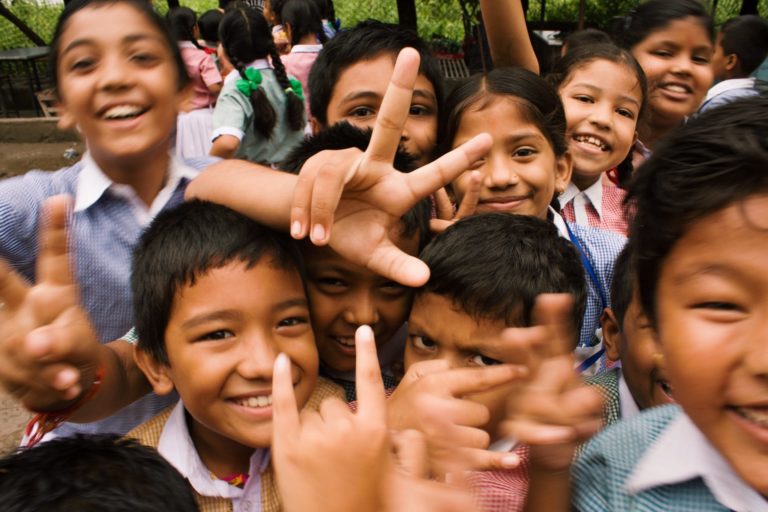
2024 technology Education technological
The progress of a country is not only determined by Natural Resources or the economy, but also depends heavily on Human Resources. Educated and qualified human resources are a foundation for the development and development of a country. Education is the main pillar for forming an individual in a society. With education, an individual not only gains academic knowledge but can also form a structured mindset, character and ethics. In the 4.0 era which is marked by the rapid development of technology, education is important as an individual’s master key to adapting and developing with continuous changes.
Therefore, countries that want progress must prioritize education. By upholding education, it indicates that the country can ensure that its people have the knowledge, skills and values to face changes in the future. Developed countries such as Finland, the Netherlands, Japan, Singapore are real examples of a country that can progress with its education system. They are a country that has succeeded in improving the quality of education, and understands that educated human resources are the basis for the country’s development. Education is a right for every individual in the world, therefore access to education must be open with equal access to education regardless of gender, age, social or economic background. For this reason, Indonesia, which is a developing country, should be able to learn and duplicate how developed countries improve the quality of their education.
Indonesia is a country that has national goals as stated in the Preamble to the 1945 Constitution, one of these national goals is to make the life of the nation smarter. One way to realize this goal is tertiary education. Tertiary education is higher education that has Diploma, Bachelor’s, Master’s and Doctoral programs. However, there are several challenges that mean tertiary education in Indonesia is not fully in line with national goals.
The first problem in tertiary education in Indonesia is the issue of unequal accessibility and equality. Indonesia is a country that has various public and private universities spread throughout Indonesia, but universities in big cities, especially on the island of Java such as Jakarta, Yogyakarta, Bandung, have better facilities, more diverse study programs, more competent teaching staff compared to universities in remote areas.
Students from remote areas often face great challenges in being able to obtain a college education due to financial problems, limited information, and long distances. A problem that has recently occurred in Indonesian education is student resignations due to high single tuition fees. Students who come from families with financial limitations are forced to give up their education. Should a student give up his dreams because of money? Of course not, education is a right for all humans and education should be fair, not favor one level of society. Everyone has the right to education, regardless of gender, age, social and economic background.
Is the Indonesian government not trying to facilitate educational accessibility and equality in Indonesian education? Of course, the Indonesian government has issued various policies to support education such as the Bidikmisi Scholarship Program and Smart Indonesia Card, but the reality on the ground shows that not everyone who needs it can access these programs and there are errors in receiving Smart Indonesia Card, for example there are many cases where Smart Indonesia Card is given to actual students. Don’t meet the requirements, while students who really need it don’t get it. This indicates that the opportunity for Indonesian people to obtain quality higher education is not evenly distributed across all levels of society.
The second problem is about the quality of teaching staff. The quality of good education is determined by the quality of the teaching staff. Educators are one of the pillars of creating quality education. However, in Indonesia many lecturers at universities do not meet the qualification standards to become a lecturer, both in terms of education and experience.
Lecturers are a bridge between science and students, therefore improving the quality of teaching staff in Indonesia must be an issue that must be negotiated by the government if it wants to achieve its national goal, namely to make the nation intelligent. Finland is a country with the best quality of education in the world. The key to this country having good quality education is one of the teaching staff who have competence, creativity, and who meet the qualification standards as teaching staff.
Efforts that can help resolve this problem are the first regarding accessibility and equality, according to the author, namely that the government improves and equalizes the quality of educational facilities throughout Indonesia by building infrastructure to accommodate student learning processes. As well as expanding information regarding scholarship programs and financial assistance, especially for students who have financial limitations. Second, regarding the quality of teaching staff, according to the author, the government must provide qualification standards regarding the competence and creativity of lecturers.
The progress of a country is determined by its Human Resources (HR). Low quality of human resources indicates that the quality of education in a country is also low. Indonesia is a country that has aspirations to make the lives of its people smarter, tertiary education is one of its efforts. However, there are many challenges faced in getting tertiary education for all Indonesian people, one of which is regarding accessibility, educational equality and the quality of teaching staff. Increasing accessibility and equality regarding infrastructure, structured financial assistance, providing scholarship programs and improving the quality of teaching staff are important steps for the progress of Indonesia. In this way, all Indonesian people can get quality higher education, with quality education it will also minimize the crisis of social inequality in society.
By: Refa Putri Virgiana
Write and Win: Participate in Creative writing Contest & International Essay Contest and win fabulous prizes.


